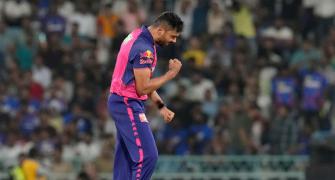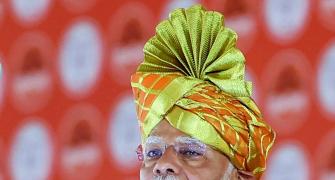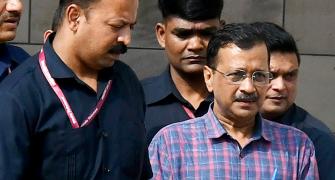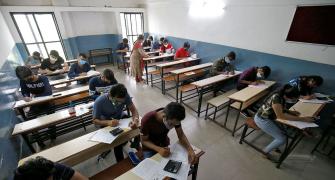'Even the President does not have the power to overrule the ECI.'
A revealing excerpt from T N Seshan's Through the Broken Glass: An Autobiography.

The bad blood between PM Narasimha Rao and me probably started with an incident in October 1991.
The office of the then law minister, Vijaya Bhaskara Reddy, would routinely ask the ECI to prepare replies to parliamentary questions to which I would object. I made it clear to them that the poll panel was no appendage of the ministry.
Reddy was angered by my instructions to my office not to prepare any replies, and that it should only provide the relevant details which the ministry needed for its reply in Parliament.
He took up the matter with the PM who summoned me to his office. In the presence of the PM, Reddy told me, 'You are not co-operative.'
I replied, 'I am not a co-operative society. I represent the Election Commission.' Apparently, the PM was stunned.
Then, turning to him, I said: 'Mr Prime Minister, I cannot do business with your minister if this is his attitude.'
More trouble followed. Narasimha Rao had become the PM in June 1991, and he had to be elected to Parliament before December. The law was that if he did not have a seat in Parliament in six months, he stood to lose the appointment.
On 8 October 1991, the attorney general of India, G. Ramaswamy rang me to inform me something the judge had mentioned in court that day.
Ramaswamy said the judge sent for him and asked whether he would give them an assurance that a certain constituency -- Etawah -- which was coming up for by-elections would not be notified.
Ramaswamy told the court that he was not the standing counsel of the ECI and that he would refer it to me.

What happened was that someone had moved the high court of Delhi that day to stop the by-election being notified in Etawah, where there was a vacancy. The lawyers moving it had asked for assurance of some kind that the elections would not be notified.
So, the court had asked Ramaswamy to do so, and he, in turn, passed it on to me.
The next morning, I was getting ready to go to the office when one of my secretaries at the ECI rang me up and reported a call from Rama Devi, saying that the government wanted Etawah to not be notified.
Rama Devi was the officer who processed all the notifications in the law ministry. When my deputy asked me for a response to Rama Devi's message about the government wanting a constituency to be excluded, I said, 'Tell her that this is not a matter to be decided at her level. She should talk to me if she wants to.'
Rama Devi then talked to Bagga, the deputy election commissioner, and repeated the same request, mentioning that the minister of state for law, Rangarajan Kumaramangalam, desired it.
What had happened was that Ramaswamy had written a letter to me and had marked a copy of it to the law minister.
In the law minister's copy, the minister had said that a certain constituency should be excluded. It is not within the power of anybody in government to exclude a constituency.
Not even the President can order such a thing unless there is something legally wrong. Nobody has the authority to decide when the notification for a particular constituency is to be issued except the ECI.
This was my first real test of autonomy.
I rang up Rama Devi and informed her that this was unacceptable to me as a CEC and that it is the ECI that decides when a particular constituency is to be notified or not. The government has no role in it.
The courts had given a stay order for elections in the case of Patna, Purnea and Meerut constituencies, but there was no stay on polls in Etawah.
Therefore, there was no reason why polls for Etawah should not be notified. That a reply had to be given to the high court judge was another matter, but as far as the decision of notifying Etawah was concerned, the law had put the ball in the ECI's court.

It is not open to elected representatives either to delete a constituency from the list or to demand that the ECI delete it, unless it senses a legal foul play.
If they had given reasons explaining why it would be legally wrong to notify polls in the constituency, I could understand. But in this case, no clear reasons were mentioned.
The only reason mentioned was that the Congress would not win the election. That is no reason for the ECI to accept the non-inclusion of the constituency.
However, Rama Devi hummed and hawed, and said that it was the minister's decision and that she could not do anything about it. Understandably, she couldn't oppose the minister.
I rang up the PM, and to make a very difficult conversation short, I said, 'In the government, there seems to be a misconception that I am the horse and the government is a rider.'
These were my exact words, 'I won't accept this. Nobody in the government has the right to dictate what I should do. If you have a good reason, please tell me. I'll listen to the reason. I'll not listen to dictates.'
The PM, after carefully listening to my words, said, 'Yes, yes, you settle it with Rangarajan.'
I said, 'No, I am not going to settle it with him. I am going to settle it with you. I need an apology from Mr Rangarajan for having tried to overrule the ECI, which he does not have the power to do.
'With great respect, even the President does not have the power to overrule the ECI. That is a critical issue; the critical issue is the authority of the ECI. If we do something wrong, you can come back and say we need to change it.
'If there is something we are not aware of a famine, a flood, a plague, cholera -- you can say we cannot hold the election because there are a lot of administrative problems. But you can't direct me to delete or include anything.'

Rangarajan telephoned me and, breaking into Tamil, he asked, 'What is the problem?'
I said, 'I have no problem. I want an apology. I want an apology from the government for trying to overrule me.'
He said, 'Shall I send it?'
I said, 'I don't mind it if you send it. But as a person who has worked in the government for 30-40 years, I know that normally the communications are sent by the civil services and not by the minister. I have no objections to either one of them. But I want it by one o'clock.'
I further said, 'If I don't get the letter by one o'clock, I am going to scrap the entire lot of elections and one of the persons to be affected would be the PM, because his elections have to be completed by December, and I won't do it. I'll say until the issue is resolved, I won't hold the election. There is nothing the PM or anybody can do about it.

To make a long story short, by 12 or 12.30 pm that day, there was a joint secretary coming up the stairs to my office with the letter from Rama Devi.
In the letter, she had written, 'If you think that there was anything improper in whatever I did or said or if anything has been informed to you in this regard that you think is improper, I wholly apologize.' It further read, 'If anything I've said or done has caused any offence, I am sorry.'
Having obtained this apology, I appended it to a letter to the minister of law and justice, recounting the incidents of the day as well as the previous day.
In it, I also informed that the commission had not received any kind of notice or order from the high court about petitions pertaining to the Etawah elections. I was standing by my earlier advice to the President of issuing a notification of fresh election in Etawah too.
Excerpted from Through the Broken Glass: An Autobiography by TN Seshan, with the kind permission of the publishers, Rupa Publications India.
Feature Presentation: Aslam Hunani/Rediff.com





